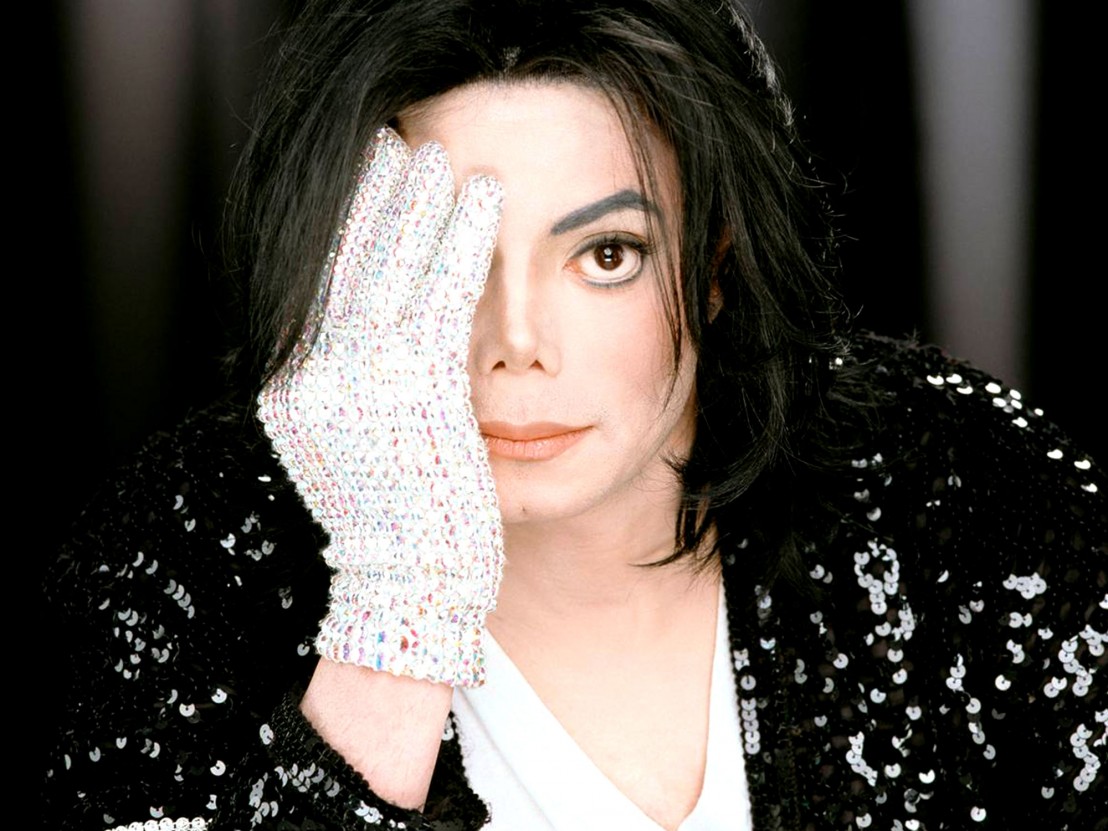
The news that Joseph Fiennes, a white British actor, will play the King of Pop is as perplexing as it is insulting.
During an infamous, televised interview conducted at Michael Jackson’s Neverland ranch in 1993, Oprah Winfrey dared to seek clarification from the self-styled “King of Pop” about a series of lurid personal rumours. Jackson gave short shrift to the suggestion that he slept in an oxygen tank, and was equally dismissive of a story claiming that he’d purchased the bones of the Elephant Man, Joseph Merrick.
Jackson reserved his most withering contempt, however, for the idea that he wanted a white child to portray him in a TV commercial. “That’s so stupid,” he sighed, before becoming visibly agitated: “That’s the most ridiculous, horrifying story I’ve ever heard. It’s crazy… it’s my face, it’s me when I was little. Why would I want a little white child to play me? I’m a black American, I’m proud to be a black American. I’m proud of my race. I am proud of who I am.”
Right up until his passing in 2009, Jackson’s physical appearance was hugely controversial: he transitioned, in full public view, from a dark-skinned black boy with a majestic afro to a light-skinned, straight-haired debate-magnet – a strange and disturbing journey unmatched in popular culture. By way of explanation, Jackson referred to the after-effects of the traumatic 1984 incident in which his hair was set on fire while filming a Pepsi commercial, and cited the need to cover up his vitiligo, a condition which causes blotches on the skin. (Jackson also admitted to having undergone plastic surgery, a fact obvious even to casual observers.)
A rare photo of Michael Jackson showing white patches all over his body (Vitiligo). pic.twitter.com/0KHXTOJtfz
— ClassicPics (@History_Pics) July 8, 2015
Some pundits apportioned the extremity of Jackson’s altered appearance to a manifestation of self-hate – “The hopeless task of sculpting and bleaching yourself into a simulacrum of a white man suggests a profound loathing of blackness,” speculated Newsweek’s David Gates in 1999 – while one of the most memorable scenes in David O Russell’s Gulf War drama, Three Kings, used Jackson’s ghoulish appearance as a pop-psychological lightning rod for exploring geopolitical conflict: “Your sick fucking country make the black man hate himself,” says Iraqi captain Said (Said Taghmaoui) to his American captive Troy (Mark Wahlberg), “just like you hate the Arabs and the children you bomb over here!”
Regardless, that quote from the horse’s mouth – “I’m proud to be a black American” – and the fact that Jackson was born to African-American parents, plus a pioneer of black musical forms, surely speaks louder than any conjecture. However he appeared cosmetically, Michael Jackson was, unequivocally, a black man.
One wonders, then, what Jackson would have made of the jaw-droppingly bizarre news that the white, British actor Joseph Fiennes – famed for playing a young Bill Shakespeare in 1998’s Shakespeare in Love – would portray him in a one-off, half-hour comedy-drama entitled Elizabeth, Michael and Marlon. Commissioned by British company Sky Atlantic, the show, which will air later this year, is based upon a wacky and probably apocryphal story: in the aftermath of the 9/11 terrorist attacks, Jackson, along with Elizabeth Taylor and Marlon Brando (to be played by Stockard Channing and Brian Cox, respectively) allegedly embarked upon a cross-country dash, taking turns driving, while Brando gorged on burgers and fries.
“It is part of a series of comedies about unlikely stories from arts and cultural history,” a Sky Arts statement read, adding that producers are afforded “the creative freedom to cast roles as they wish.” (It’s notable that neither Brando nor Taylor will be played by non-white actors, meaning that it is not a conceptual, anything-goes identity exercise in the vein of Todd Haynes’ I’m Not There, in which six actors of varied gender, age and race played Bob Dylan.)
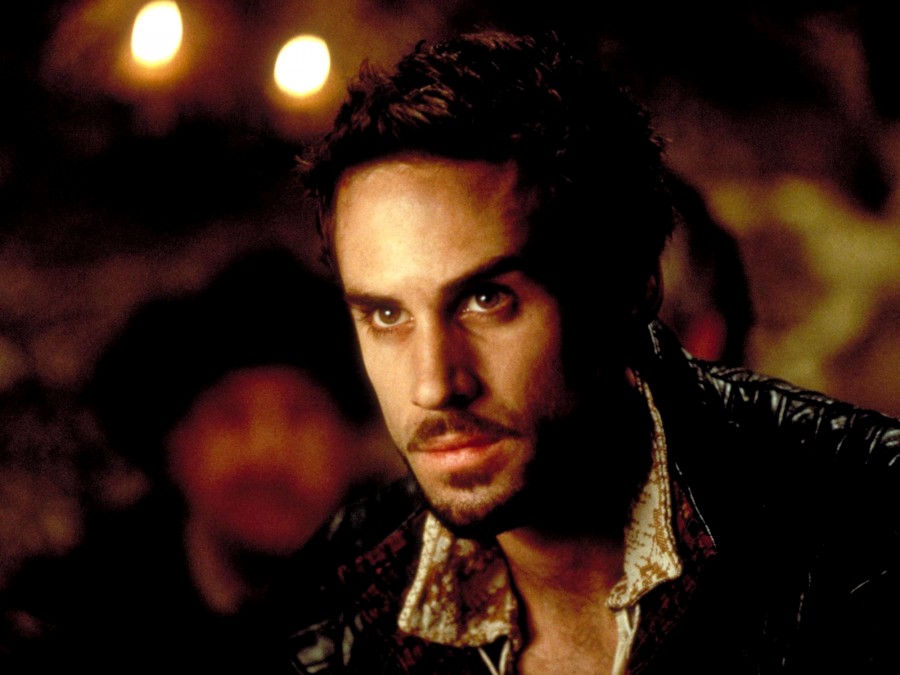
Fiennes, for his part, appears casually bemused by the casting, if not sufficiently concerned to have turned down the role. “I’m a white, middle-class guy from London,” he told ET Online, harbouring no Dolezalian delusions, “I’m as shocked as you might be.” Fiennes also commented that “he [Jackson] was probably closer to my colour than his original colour” – a dismayingly skin-deep response, suggesting that he hadn’t researched too deeply into the passion of Jackson’s self-identification.
The casting of Fiennes has prompted a strong response on social media – a mixture of horror, incredulity and wry amusement – and, given the current climate, it’s not hard to see why. Of course “acting”, by definition, involves playing other people, but the profession doesn’t exist in a social, historical and political vacuum: when it comes to race and opportunity, the playing field is far from level (it’s why the time-honoured “but what about White Chicks?” reverse-blackface argument doesn’t wash; there’s no white version of the montage which closes Spike Lee’s Bamboozled.)
BRILLIANT! Ordered my violet contacts & bathed in White Diamonds this morning, so I’m READY! Let’s do this! xo! Ang https://t.co/E8O4NY438y
— Angela Bassett (@ImAngelaBassett) January 27, 2016
The news emerges at a time of #OscarsSoWhite, and animated, constructive conversations about the need for greater industry diversity. A time of controversy over white actors (still) browning-up for roles in blockbusters like Exodus: Gods and Kings and Gods of Egypt. A time in which the mere suggestion of a black actor (Idris Elba) playing an entirely fictional character (James Bond) is met with both robust and cravenly coded objections (Elba was “too street” for the role, according to 007 author Anthony Horowitz.)
Indeed, the selection of Fiennes – a Londoner – feels like a slap in the face for black British actors. The exodus of black talent to America, prompted by a lack of opportunity and structural support at home, has been a running point of debate, cited recently by David Oyelowo in an impassioned Guardian interview (“I felt pushed out of the UK because of the glass ceiling I could feel my head bobbing against.”) In a climate where a white man can be cast as the greatest black entertainer of his generation, can you blame the likes of David Harewood, Daniel Kaluuya, Marianne Jean-Baptiste and Ricky Whittle for trying to make a go of it elsewhere? It makes one wonder what’s next on the horizon. Hugh Grant as Luther Vandross? Carey Mulligan as Aretha Franklin? (I’m not clued in on the matter, but I’d very be interested to learn whether Fiennes walked into the role, beat off competition from black actors, or whether open auditions were held at all. For the record, my unsolicited Jacko casting suggestions: Danny-Lee Wynter, Colin Salmon, or Ashley Walters.)
All that being said, one need only glance at VH-1’s stratospherically terrible Man in the Mirror: The Michael Jackson Story from 2004 to see that casting a black actor as Michael Jackson is not an automatic shortcut to success and authenticity in itself. In this lurid and trashy TV movie, the hulking 6’3’’ actor Flex Alexander makes a complete hash of approximating Jackson’s feline voice and slim, 5’9’’ frame, while his cosmetic transition from dark to light skin is handled especially poorly by the filmmakers – one YouTube commenter sums it up best when he writes, “lol im dead they dip this dude in baby powder and said action.”
However, this outlying failure doesn’t mitigate the wrong-headedness of Fiennes’ casting. It is, I think, at least in part related to an historically casual attitude toward matters of race in the UK media landscape, engendered by a distinct lack of diversity at decision-making level. Consider that the BBC’s long-running ‘Black and White Minstrel Show’ wasn’t cancelled until, astonishingly, 1978, when black actors like Don Warrington, Rudolph Walker and Norman Beaton were appearing regularly on TV, doing their best with often limited roles. In the ensuing years, neo-black- and brown-face has continued to appear on British screens with an alarming frequency.
A 2008 sketch in which a blackfaced Rory Bremner shucks and jives as a bug-eyed version of celebrity chef Ainsley Harriott, before feeding himself into a meat-grinder, is among the most disturbing things I’ve ever seen on TV, but an OFCOM response to viewer complaints flatly denied the presence of racism. Other actors like Matt Lucas and David Walliams have gotten away with indulging in a panoply of troubling racial stereotypes in their work (Precious Little, anyone? Ting Tong?), while Harry Enfield and Paul Whitehouse have done the same. In the current BBC show, the generally mirthful music mockumentary Brian Pern, the white British actress Lucy Montgomery plays Pepita, a “fiery” Mexican caricature in brownface. (I feel compelled to issue a disclaimer here: I’m not saying that all of these comedians are virulent racists, or that I’ve reacted with a stony face to everything they’ve ever done – I still have mad love for George Dawes! I’m just pointing out that these issues are all connected.)
Then, of course, there was Leigh Francis’ berserk, plastic-masquerade show, Bo Selecta, which built upon the popular British conception of “Wacko Jacko” (his 1996 run-in with Jarvis Cocker at the BRITs; his fraught interview with Martin Bashir) to create an absurdist, jive-talking version of the star (“Sha’mone muthafucka!”) Many years ago, long before I’d started writing and thinking seriously about issues of race and representation, I found the show’s unhinged quality vaguely amusing.
Watching it back today, I find myself horrified by its flagrant caricatures of black public figures, including Jackson, Quincy Jones, Oprah Winfrey and Trisha Goddard, while also appreciating that its lampoonery runs far beyond one racial category. When the Guardian’s Sam Delaney suggested to Francis in 2006 that the show uses the same racialised cliches in its portrayal of black people that openly racist people do, he received a defensively hostile response: “I think people go around treading on eggshells and worrying, ‘Ooh, is he racist?’ No! You’re fucking racist because you’re worrying about it. I’m not worrying about it because I know I’m not racist!”
Francis categorically knew he wasn’t racist, and the creative team behind Elizabeth, Michael and Marlon presumably don’t think that they’re doing anything remotely troublesome, either. Nobody yet knows how the show will pan out – it just might be a model of acting, scripting, cinematography and editing – but the apparent cluelessness of its central casting has given it a mountain to climb, and the rest of us plenty to discuss.
What are your thoughts on Fiennes’ casting? Have your say @LWLies
Published 29 Jan 2016
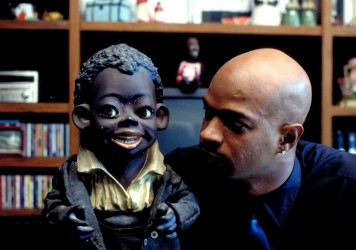
Find out by joining the author of ‘Facing Blackness’ for a special screening of the director’s 2000 film.
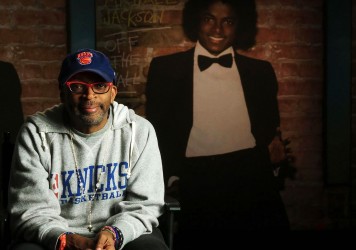
By Ed Gibbs
Spike Lee’s follow-up to Bad 25 shines a light on the King of Pop’s indisputable talents, but is otherwise alarmingly lightweight.
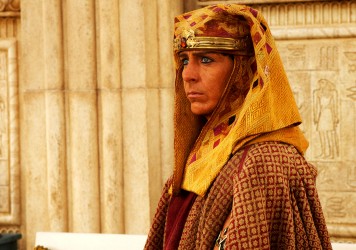
The trailer for Gods of Egypt suggests Hollywood is in no rush to break one of its most repellent habits.